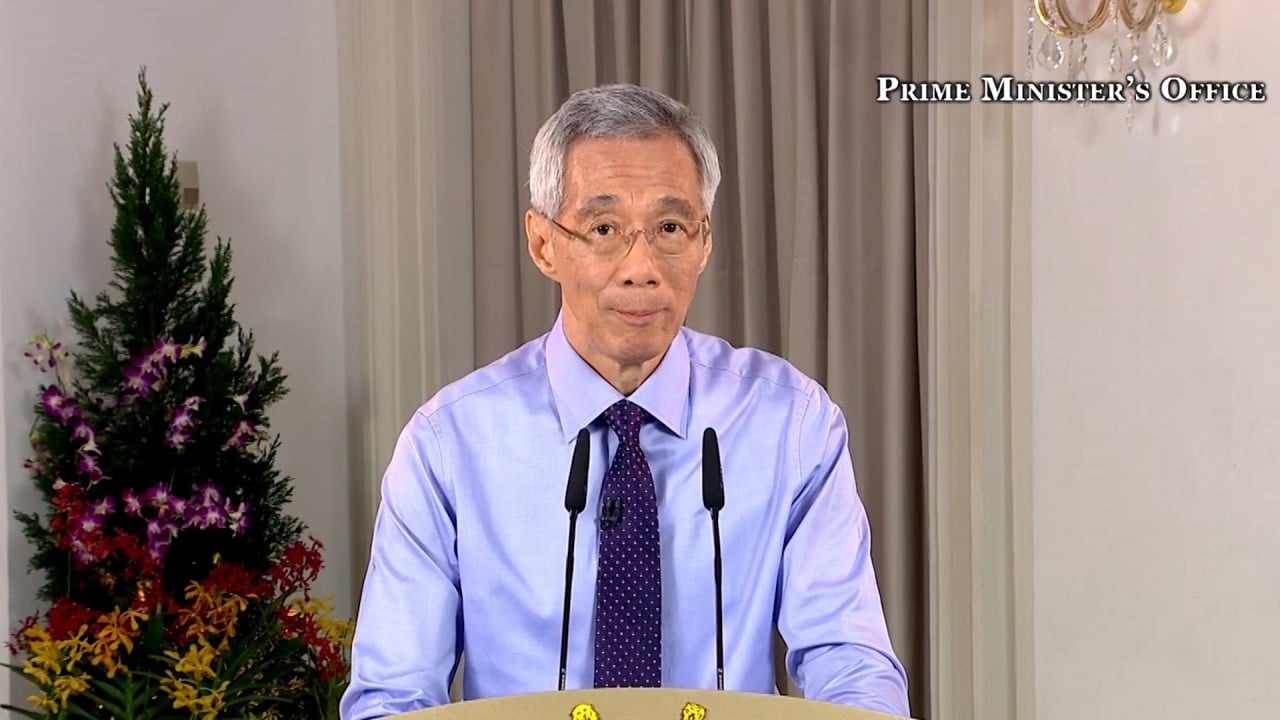
Coronavirus: China set for 100 million doses of BioNTech vaccine amid roll-out of shots overseas
- China poised to have a mix of foreign and domestic vaccine stocks
- UAE has started inoculations using a vaccine developed under Sinopharm and the US, Britain and Canada have administered Pfizer-BioNTech vaccinations
BioNTech has been developing its mRNA-based vaccine in cooperation with US company Pfizer globally, while the firm has partnered with Fosun Pharma, as the Chinese company is commonly known, for development and distribution in China. Both partnerships were arranged separately in March. The mRNA vaccine is a two-dose course, so 100 million doses would be enough for 50 million people.

02:29
Singapore first in Asia to approve Pfizer-BioNTech Covid-19 vaccine
The announcement about supplying China comes as much-awaited vaccines are starting to be administered in other countries.
BioNTech and Pfizer announced results from their phase 3 study of the BNT162b2 vaccine on November 18. They found the vaccine to be 95 per cent effective against Covid-19 as compared with a placebo. Results were published in the peer-reviewed New England Journal of Medicine last week.
How Unicef is preparing for challenge of distributing Covid-19 vaccines
Another trial site, Bahrain, has followed suit in approving the Sinopharm vaccine, although complete data has not been made available by the company or in a scientific publication.
China’s limited-use authorisation of candidates developed under Sinopharm and another Chinese company, Sinovac, came before phase 3 trials were completed.
After the coronavirus research race, vaccine producers face new hurdles
The doses under the BioNTech and Fosun Pharma agreement will initially come from BioNTech’s German production facilities, both firms said on Wednesday.
“We are pleased to reach the supply agreement with BioNTech, which is an important step in Fosun Pharma and BioNTech’s efforts to achieve vaccine accessibility and affordability in China,” said Fosun Pharma chairman and CEO Wu Yifang.
To meet the regulatory requirements, the companies launched a phase 2 clinical trial of their vaccine candidate in China last month.
Results of that trial, which assesses the safety and immunogenicity of the vaccine candidate in 960 Chinese participants, will be paired with global data from Pfizer-run phase 3 trials to support their approval application.
In a Hong Kong stock exchange filing, Fosun Pharma said the sale and supply of the vaccine would be made in stages, including the import of both finished products and bulk ingredients.
Fosun Pharma said its side would be entitled to 60 per cent of annual gross profit from sales of doses that it would make from imported bulk ingredients, and 65 per cent of profit from sales of imported finished doses.
The Fosun Pharma and BioNTech agreement is among several partnerships between international and Chinese firms for Covid-19 vaccine supply.
In a deal with British-Swedish company AstraZeneca, Shenzhen Kangtai Biological Products aims to have enough capacity to produce at least 100 million doses by the end of the year.
Sinopharm could have the capacity to produce 1 billion doses of Covid-19 vaccines next year, Chinese media reported this week. Although it remains unclear how many are earmarked for domestic use.

